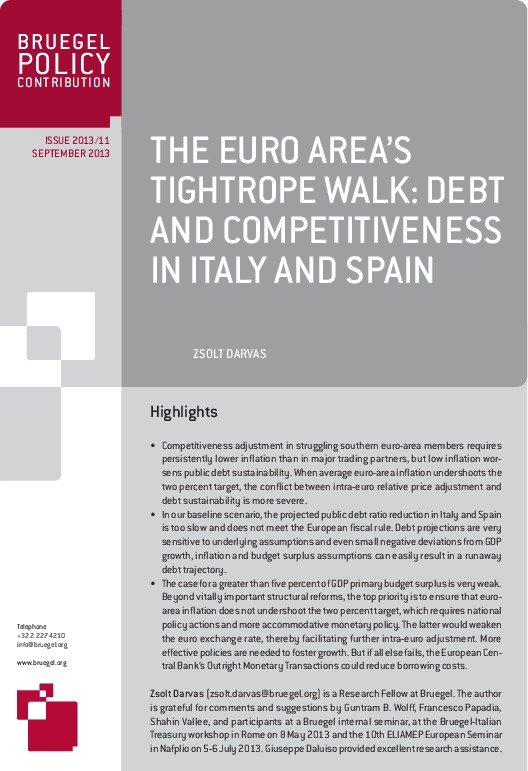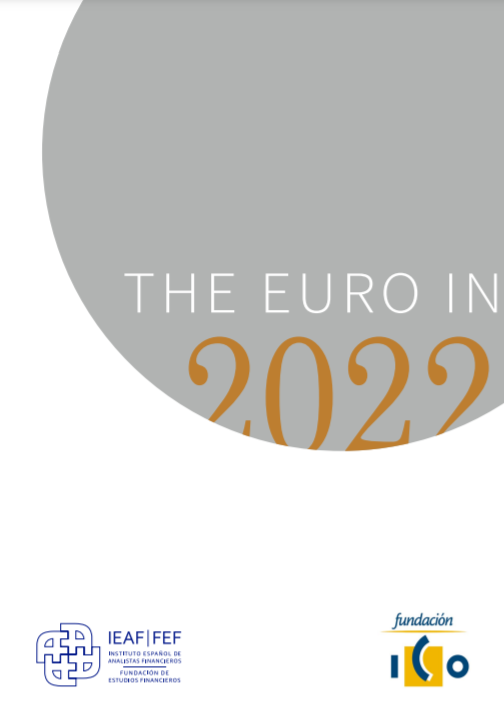Policy Contribution
The euro area’s tightrope walk: debt and competitiveness in Italy and Spain
Competitiveness adjustment in struggling southern euro-area members requires persistently lower inflation than in major trading partners, but low inflation worsens public debt sustainability. When average euro-area inflation undershoots the two percent target, the conflict between intra-euro relative price adjustment and debt sustainability is more severe.
Competitiveness adjustment in struggling southern euro-area members requires persistently lower inflation than in major trading partners, but low inflation worsens public debt sustainability. When average euro-area inflation undershoots the two percent target, the conflict between intra-euro relative price adjustment and debt sustainability is more severe.
In our baseline scenario, the projected public debt ratio reduction in Italy and Spain is too slow and does not meet the European fiscal rule. Debt projections are very sensitive to underlying assumptions and even small negative deviations from GDP growth, inflation and budget surplus assumptions can easily result in a runaway debt trajectory.
The case for a greater than five percent of GDP primary budget surplus is very weak. Beyond vitally important structural reforms, the top priority is to ensure that euro area inflation does not undershoot the two percent target, which requires national policy actions and more accommodative monetary policy. The latter would weaken the euro exchange rate, thereby facilitating further intra-euro adjustment. More effective policies are needed to foster growth. But if all else fails, the European Central Bank’s Outright Monetary Transactions could reduce borrowing costs.













